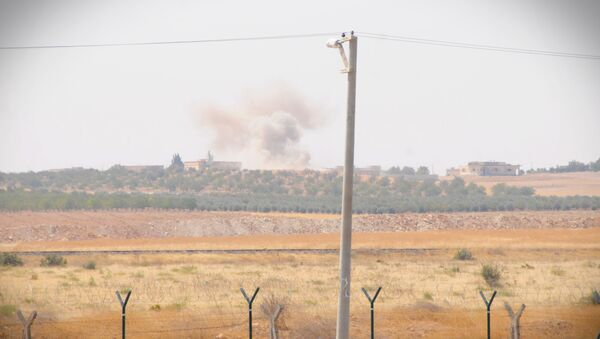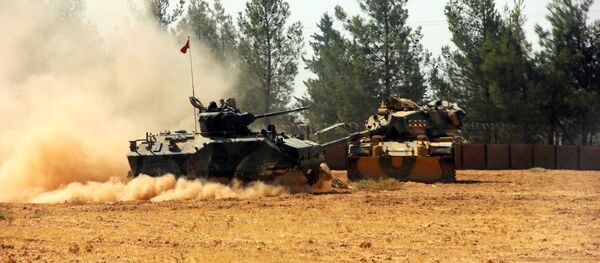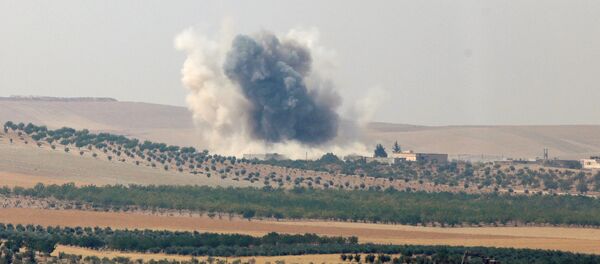With the operation in Jalabrus, Ankara wants to break regional isolation, change the regional balance of power and return as a major party to the Syrian crisis, Huseyin Bagci, a political analyst at the Middle East Technical University (ODTU) in Ankara, said.
"One of the preconditions for such a move is that Turkey is now working with Russia on Syria and Russia is one of the most important players involved in the conflict. Russia is the leader and Turkey is following," the expert told Sputnik.
Such a situation presumes that Moscow and Ankara are working together.
"The Jarablus operation was authorized by the United States and Russia. This was a coordinated move," he pointed out.
Currently, northern Syria, including Jarablus, is controlled by Kurdish forces. For Turkey, the priority goal was to prevent a Kurdish corridor but it failed. The Jarablus operation is aimed not only against Daesh. Another goal is to prevent Kurds from boosting their positions to the West from Euphrates.
According to the analyst, the Jarablus operation also has a symbolic meaning for the Turkish Armed Forces because their international image was damaged by an attempted coup on July 15.
Bagci also suggested that Turkey will continue to expand its military presence in the region.
"Of course, Turkey has military capabilities sufficient to fight terrorism, including at the Syrian border. The question is whether Turkey will be able to effectively cooperate with other players in the region. Ankara has made a U-turn in its strategy and engaged in a large-scale counterterrorism operation," the expert said.




